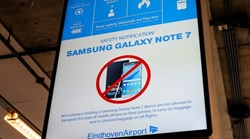Crises happen to the best of us, so what if you knew the secret art of planning for one? Alistair Jaque and Craig Badings write.


The “that will never happen to us” response to crisis scenarios from corporations abounds: Heineken branding prominently displayed at a dog fighting event in a Mongolian nightclub; the Australian government imposing a $6 billion tax on banks; Volkswagen designing a computerised emissions bypass program to cheat emissions tests; Pepsi advertising for unity, peace and understanding, and then roundly attacked for trivialising protests and the Black Lives Matters movement; United Airlines forcibly and violently removing a passenger from an overbooked plane – and the list goes on.
That will never happen to us is based on two human factors. The first is our level of optimism and reluctance to focus on the negative, the second stems from the culture of the organisation. It could be one or a combination of things; a naïve reliance on processes or systems that supposedly prevent an incident, or a culture which doesn’t encourage or support issues nor incident reporting, let alone acting on them if and when they are reported. According to data from the Institute for Crisis Management, 75 per cent of all organisational crises are preceded by warning flags which are not acted on appropriately.
The reality is bad stuff happens everyday. Nobody wants, nor in many instances, plans for a crisis. Experienced crisis executives will tell you how surprised they are by the inordinate amount of senior management time and resources a crisis sucks up. It was Tony Hayward, the CEO of BP during the Gulf spill crisis, who now infamously said: “…I just want my life back.”
One of the findings of SenateSHJ’s Reputation Reality 2017 report is that 98 per cent of those interviewed have said corporate reputation is one of their organisation’s primary assets, yet although around two-thirds of companies surveyed have a crisis plan, only 41 per cent of these test their crisis plan annually and only 55 per cent plan to invest in crisis simulation.
It could be argued, in today’s low-trust, ever competitive environment, that a brand’s most important asset is its reputation yet it’s not on the balance sheet. Samsung losing $17 billion in market capitalisation over the Galaxy Note 7 crisis is a wake-up call to companies to spend the money required to ensure they do everything possible to prepare for a crisis.
And this does not only apply to large companies. Businesses of any size can be affected by events such as IT or data breaches, theft, and product issues. Organisations should also be planning for the knock-on effect if their main supplier suffers a crisis.
These issues can result in significant disruption to businesses, alongside legal claims, fines, instability, negative media and social media coverage, poor public perception, low morale in the business, and consumer churn.
There appears to be a lack of awareness in the market of the financial effects of a crisis. This is partly due to the difficulty in quantifying the risk. For example, compared to professional indemnity and product liability insurance, there are very few companies who have insurance for a reputational crisis other than business interruption insurance.
Studies show that it can take from one to three years for a business to recover from a reputational crisis. And it’s usually the company executives who take the fall.
So how can a business and its directors and senior executives protect themselves?
Time is critical. The ubiquity of social media means responses can spread like wildfire and events can quickly spiral out of control. So it’s best to be prepared before anything actually happens. This means having a plan. One which has been tested. One where a director has been assigned the responsibility for crisis management protocols, briefing staff, and working with the company's lawyers and insurers to mitigate the risks.
Part of this plan also requires assembling the best team possible to front a crisis with you. This means an internal crisis management team as well as external consultants. It’s not good enough to rely only on legal or communications advice.
What you say and when, and how you respond requires a careful combination of reputation and legal liability advice.
There are times when the legal advice is, in the eyes of the law, correct. A recent example of this is Ardent Leisure announcing a cash bonus for its CEO two days after the Dreamworld tragedy. However, it can also be a reputational kiss of death. Sometimes what is legally right may not measure up to the thermometer of public perception of right or wrong.
Apologising for the incident which may incur some sort of legal liability down the track is not the same as saying you are sorry to those affected by the incident.
Likewise, legal and communication professionals over-sanitising messages in a ‘war’ room often run the risk of significantly diminishing the authenticity of the message, ultimately at the expense of that all-important human touch. Sometimes a crisis response requires more emphasis on how things are said than what is said. The cold, distant, overly messaged CEO talking about an incident where lives have been lost won’t cut it as the company spokesperson, and they run the risk of ruining not only their own reputation but also that of the company.
Most lawyers today understand the subtle nuance between what is legally right versus how it may hold up in the court of public opinion. The combination of the right legal and communication counsel will more often than not result in the best efforts to protect the company’s reputation in a crisis.
When in doubt always refer back to the company’s mission and values – after all these should be the compass by which the crisis management team makes all its decisions.


Craig Badings (pictured right) is a partner at SenateSHJ and Alistair Jaque (pictured left) is a partner at Swaab Attorneys.